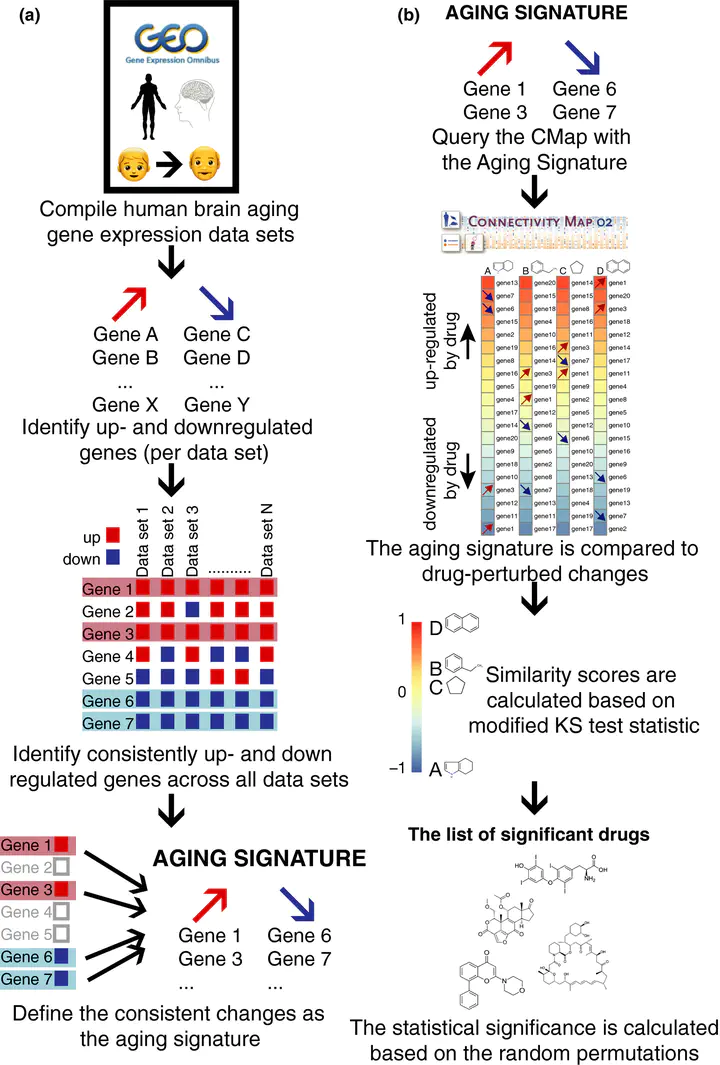 Figure 2 - Aging Cell
Figure 2 - Aging Cell
Abstract
Aging is the largest risk factor for a variety of noncommunicable diseases. Model organism studies have shown that genetic and chemical perturbations can extend both lifespan and healthspan. Aging is a complex process, with parallel and interacting mechanisms contributing to its aetiology, posing a challenge for the discovery of new pharmacological candidates to ameliorate its effects. In this study, instead of a target-centric approach, we adopt a systems level drug repurposing methodology to discover drugs that could combat aging in human brain. Using multiple gene expression data sets from brain tissue, taken from patients of different ages, we first identified the expression changes that characterize aging. Then, we compared these changes in gene expression with drug-perturbed expression profiles in the Connectivity Map. We thus identified 24 drugs with significantly associated changes. Some of these drugs may function as antiaging drugs by reversing the detrimental changes that occur during aging, others by mimicking the cellular defence mechanisms. The drugs that we identified included significant number of already identified prolongevity drugs, indicating that the method can discover de novo drugs that meliorate aging. The approach has the advantages that using human brain aging data, it focuses on processes relevant in human aging and that it is unbiased, making it possible to discover new targets for aging studies.